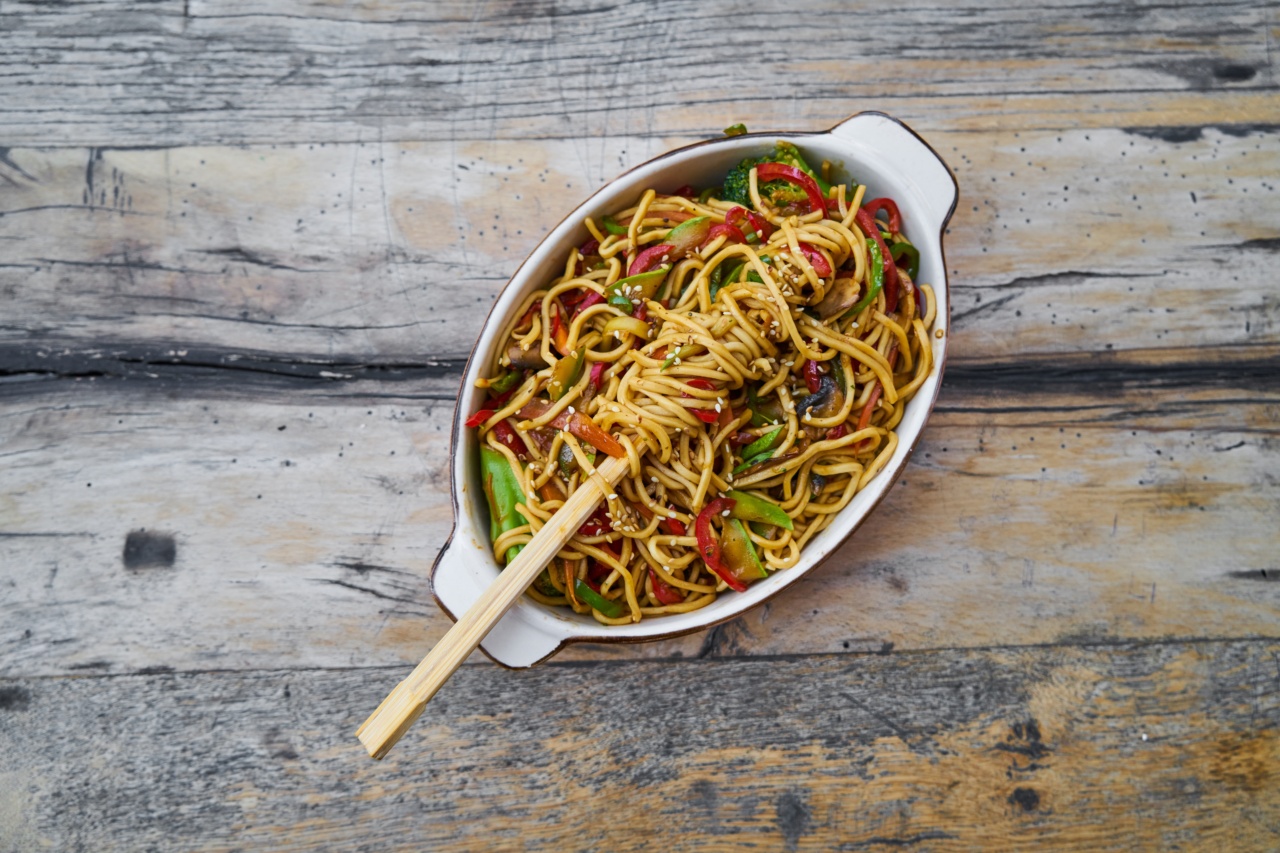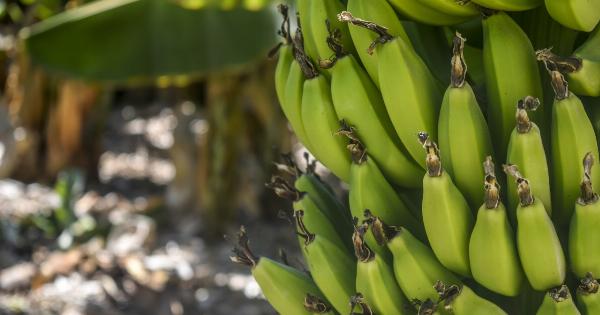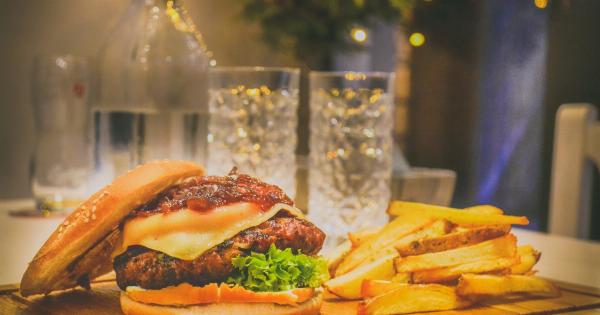Sleep plays a crucial role in our overall health and well-being. It rejuvenates our bodies, enhances cognitive function, and promotes emotional well-being.
However, getting a good night’s sleep can sometimes be challenging, especially when you struggle with insomnia or other sleep disorders. While there are various factors that affect our sleep patterns, such as stress and lifestyle choices, one often overlooked aspect is nutrition. The food we eat can have a significant impact on our sleep quality.
In this article, we will explore the essential nutrients that can help you achieve a restful night’s sleep.
1. Melatonin
Melatonin is a hormone that regulates the sleep-wake cycle. It is naturally produced by the brain’s pineal gland in response to darkness, signaling our bodies to prepare for sleep.
However, certain factors like exposure to artificial light, stress, and an unhealthy diet can disrupt melatonin production. To enhance your melatonin levels, you can incorporate the following foods into your diet:.
- Cherries: Cherries are a natural source of melatonin. Consuming fresh or tart cherry juice can help regulate sleep patterns.
- Almonds: Almonds are a rich source of both melatonin and magnesium, another mineral that promotes quality sleep.
- Walnuts: Walnuts are packed with melatonin and healthy fats that can aid in improving sleep duration and quality.
2. Magnesium
Magnesium is a mineral that plays a vital role in promoting relaxation and sleep. It helps regulate neurotransmitters involved in sleep, such as GABA.
If you have difficulty falling asleep or experience restless nights, increasing your magnesium intake may be beneficial. Here are some magnesium-rich foods:.
- Leafy green vegetables: Spinach, kale, and Swiss chard are excellent sources of magnesium.
- Avocados: Avocados not only provide magnesium but also contain healthy fats that promote a steady release of energy during sleep.
- Bananas: Bananas are not only rich in magnesium but also contain potassium, which can prevent nighttime leg cramps.
3. Tryptophan
Tryptophan is an essential amino acid that serves as a precursor to serotonin and melatonin, both of which promote relaxation and sleep. Consuming tryptophan-rich foods can help increase serotonin levels and support better sleep.
Some tryptophan-containing foods include:.
- Turkey: Turkey is often associated with inducing sleepiness, thanks to its tryptophan content.
- Salmon: Salmon is not only a source of tryptophan but also provides omega-3 fatty acids, which have been linked to improved sleep quality.
- Seeds: Pumpkin, sunflower, and chia seeds are excellent plant-based sources of tryptophan.
4. Vitamin B6
Vitamin B6 is a vitamin that plays a crucial role in the production of neurotransmitters, including serotonin, melatonin, and GABA. These neurotransmitters are essential for regulating sleep patterns and promoting restful sleep.
Incorporating foods rich in vitamin B6 into your diet can help maintain optimal sleep. Some vitamin B6-rich foods include:.
- Chicken and turkey: These lean meats are not only high in tryptophan but also contain vitamin B6.
- Sunflower seeds: Sunflower seeds provide both vitamin B6 and tryptophan.
- Garbanzo beans: Also known as chickpeas, these legumes are a good source of vitamin B6 and can be incorporated into various dishes.
5. Calcium
Calcium is a mineral that plays a vital role in our body’s sleep-wake cycle. It helps the brain utilize tryptophan and convert it into melatonin, promoting relaxation and restorative sleep.
Including calcium-rich foods in your diet can support better sleep. Some calcium-containing foods include:.
- Dairy products: Milk, yogurt, and cheese are excellent sources of calcium. Opt for low-fat or non-dairy alternatives if you prefer plant-based options.
- Leafy green vegetables: Broccoli, kale, and collard greens provide calcium along with other sleep-enhancing nutrients.
- Sardines: Sardines are not only a great source of calcium but also contain omega-3 fatty acids, making them an excellent choice for overall sleep health.
6. Vitamin D
Vitamin D is a crucial nutrient for overall health, including sleep quality. It helps regulate the production of serotonin, dopamine, and norepinephrine, all of which play a role in sleep regulation.
While sunlight is the most significant source of vitamin D, certain foods can also provide this essential vitamin:.
- Fatty fish: Salmon, trout, and mackerel are rich in vitamin D and omega-3 fatty acids, promoting better sleep.
- Mushrooms: Some mushrooms, like shiitake and maitake, can naturally produce vitamin D when exposed to sunlight.
- Egg yolks: Egg yolks contain small amounts of vitamin D and can be a part of a nutritious diet supporting sleep.
7. Potassium
Potassium is an essential mineral that aids in muscle relaxation and nerve signal transmission. Consuming potassium-rich foods can help prevent muscle cramps and promote better sleep. Some potassium-containing foods include:.
- Bananas: In addition to their magnesium content, bananas are a great source of potassium.
- Oranges: Oranges are rich in potassium and can serve as a healthy bedtime snack.
- Potatoes: Whether baked or mashed, potatoes offer a good amount of potassium to support sleep health.
8. Omega-3 Fatty Acids
Omega-3 fatty acids are known for their anti-inflammatory properties and numerous health benefits, including improved sleep. They can help regulate serotonin production, reduce inflammation, and decrease anxiety, allowing for a more restful sleep.
Here are some omega-3 rich foods:.
- Fatty fish: Salmon, tuna, and sardines are excellent sources of omega-3 fatty acids and other sleep-promoting nutrients.
- Flaxseeds: Flaxseeds provide omega-3 fatty acids and can be added to smoothies, yogurt, or baked goods.
- Chia seeds: Chia seeds not only contain omega-3 fatty acids but are also high in tryptophan for better sleep.
9. Iron
Iron is an essential mineral that aids in the transportation of oxygen throughout our bodies. Iron deficiency can lead to restless leg syndrome, a condition associated with poor sleep quality.
Including iron-rich foods in your diet can help maintain optimal iron levels and promote better sleep. Some iron-containing foods include:.
- Lean meats: Beef, lamb, and poultry are excellent sources of iron and can support healthy sleep patterns.
- Beans and lentils: These plant-based sources of iron are not only nutritious but also provide fiber for improved digestion.
- Dark chocolate: Indulging in a small piece of dark chocolate can provide iron and magnesium, both beneficial for sleep health.
10. Vitamin C
Vitamin C is an antioxidant that supports various bodily functions, including sleep. It helps regulate the production of serotonin and can improve sleep quality. Incorporating vitamin C-rich foods into your diet can contribute to better sleep.
Some vitamin C-containing foods include:.
- Citrus fruits: Oranges, grapefruits, and lemons are not only packed with vitamin C but also provide hydration for a more comfortable sleep environment.
- Bell peppers: Red, yellow, and green bell peppers are rich in vitamin C and can be included in various dishes.
- Strawberries: Strawberries are a delicious source of vitamin C, fiber, and antioxidants.
By incorporating these essential nutrients into your diet, you can improve your sleep quality and wake up feeling refreshed and rejuvenated. Remember to maintain a balanced diet and consult with a healthcare professional for personalized advice.
Sweet dreams!.






























